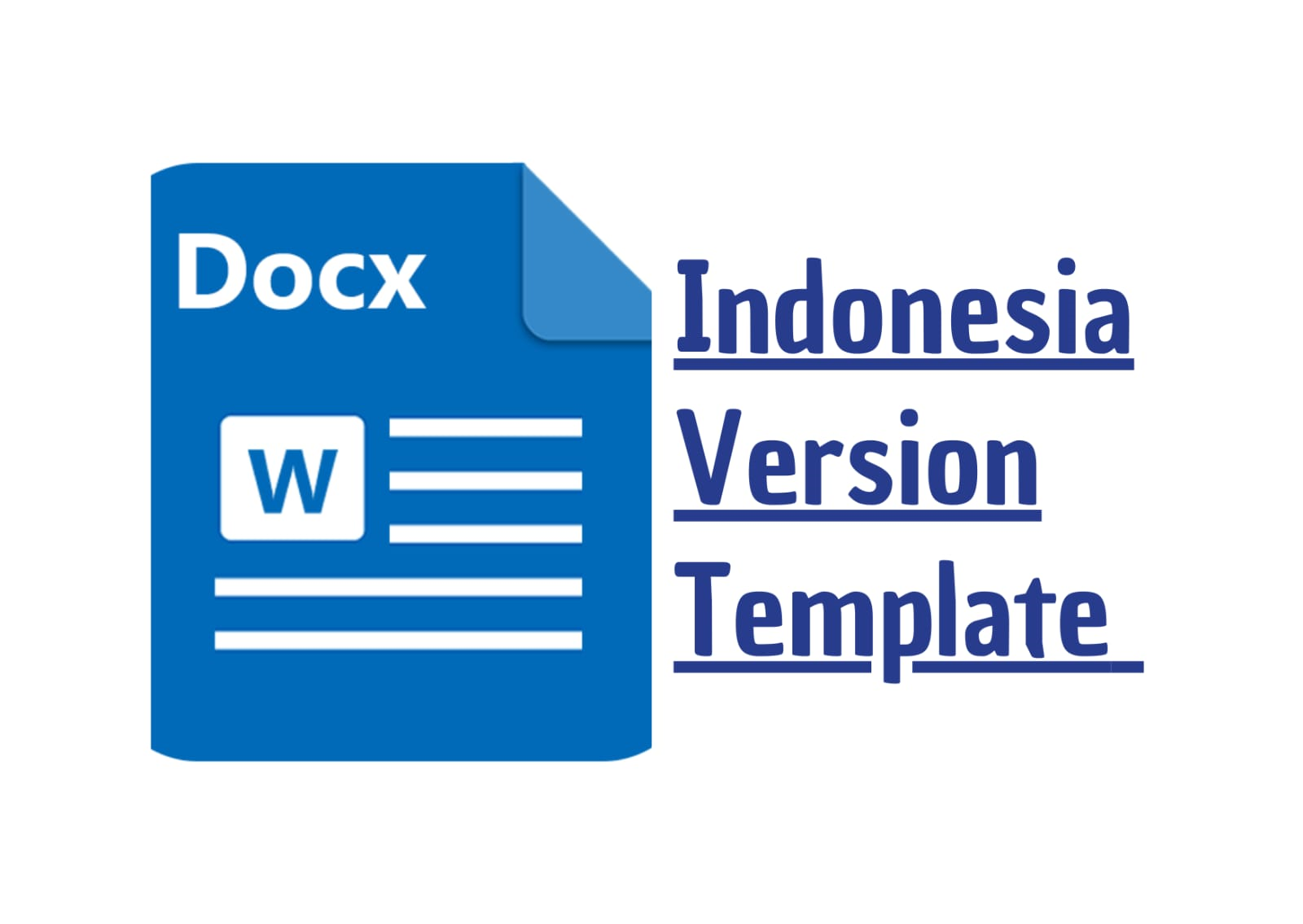Building the Sustainable Self-Reliance on Children Behaviour During the Pandemic through the Logical Framework Approach
Keywords:
Pedagogy, Islamic Studies, Logical Framework, Counselling, Parenting, Resilience, Covid19, Self-ConfidenceAbstract
During the pandemic in the last two years, it has evolved a challenge for teachers and parents and for developing children's thinking. At an early age where they should be able to learn constantly through the school and home environment, they suddenly descend into a situation of uncertainty which makes the limitations of developing their behaviour.
As the nation's best generation hopefuls, it is necessary to introduce children through a logical framework to have independence, especially in dealing with uncertain situations at this time. The authors are straining how children can apply it through direct guidance from parents and teachers with hybrid guidance through this framework. Through qualitative concepts accompanied by interviews and observations in SD Islam & Tahfidz Ibnu Umar Tangerang Selatan, parents feel the progress of their children's way of thinking in dealing with time and making more use of it positively through their daily activities and adding self-confidence, especially in their independence in making choices in the use of time.
Downloads
References
Aliyyah, R. R., Rachmadtullah, R., Samsudin, A., Syaodih, E., Nurtanto, M., & Tambunan, A. R. S. (2020). The perceptions of primary school teachers of online learning during the COVID-19 pandemic period: A case study in Indonesia. Journal of Ethnic and Cultural Studies, 7(2), 90–109.
Arlinwibowo, J., Retnawati, H., Kartowagiran, B., & Kassymova, G. K. (2020). Distance learning policy in Indonesia for facing pandemic COVID-19: School reaction and lesson plans. Journal of Theoretical and Applied Information Technology, 2828–2838.
Azhari, B., & Fajri, I. (2021). Distance learning during the COVID-19 pandemic: School closure in Indonesia. International Journal of Mathematical Education in Science and Technology, 1–21.
Baccarini, D. (1999). The logical framework method for defining project success. Project Management Journal, 30(4), 25–32.
Brown, S. M., Doom, J. R., Lechuga-Peña, S., Watamura, S. E., & Koppels, T. (2020). Stress and parenting during the global COVID-19 pandemic. Child Abuse & Neglect, 110, 104699.
Campion, M. A., Medsker, G. J., & Higgs, A. C. (1993). Relations between work group characteristics and effectiveness: Implications for designing effective work groups. Personnel psychology, 46(4), 823-847.
Coman, C., Țîru, L. G., Meseșan-Schmitz, L., Stanciu, C., & Bularca, M. C. (2020). Online teaching and learning in higher education during the coronavirus pandemic: students' perspective. Sustainability, 12(24), 10367.
Dale, R. (2003). The logical framework: an easy escape, a straitjacket, or a useful planning tool? Development in Practice, 13(1), 57–70.
Gasper, D. (2000). Evaluating the 'logical framework approach' towards learning‐oriented development evaluation. Public Administration and Development, 20(1), 17–28.
Haddon Jr, W. (1972). A logical framework for categorising highway safety phenomena and activity. Journal of Trauma and Acute Care Surgery, 12(3), 193–207.
Hamon, R. R., & Blieszner, R. (1990). Filial responsibility expectations among adult child–older parent pairs. Journal of Gerontology, 45(3), P110–P112.
Haque, S. A. (2021). Homeschooling Implementation: Indonesian Parents' Experience During The COVID-19 Pandemic. AL-ISHLAH: Jurnal Pendidikan, 13(1), 242–252.
Karta, I. W., & Rasmini, N. W. (2021). The Description of Early Childhood Growth and Development with Online Learning Based on Authentic Assessments. 2nd Annual Conference on Education and Social Science (ACCESS 2020), 245–250.
Koerber, A., & McMichael, L. (2008). Qualitative sampling methods: A primer for technical communicators. Journal of business and technical communication, 22(4), 454-473.
Lilley, D. (2009). Design for sustainable behaviour: strategies and perceptions. Design Studies, 30(6), 704–720.
Maspul, K. A., & Amalia, F. (2021). Normalisation of Schools in the Process of Face-to-face Activities in Indonesia. Academia Letters, 2.
Maspul, K. A., & Amalia, F. (2021a). The Importance of Big Data and Internet of Things Development in Learning Activities Post-Pandemic in Indonesia. Academia Letters, 2.
Maspul, K. A., & Amalia, F. (2021b). The Role of Parents in the Implementation of Hybrid Learning Toward School Normalisation in Indonesia. Academia Letters, 2.
Maspul, K. A., & Amalia, F. (2022). The Efficacy of Hybrid Learning Process in SMA Islam Ibnu Umar Students Tangerang Selatan. Joong-Ki: Jurnal Pengabdian Masyarakat, 1(2), 256-259.
Martinez, D. E., & Cooper, D. J. (2020). Seeing Through the Logical Framework. VOLUNTAS: International Journal of Voluntary and Nonprofit Organisations, 31(6), 1239–1253.
Michie, S., & West, R. (2020). Behavioural, environmental, social, and systems interventions against covid-19. British Medical Journal Publishing Group.
Mishra, L., Gupta, T., & Shree, A. (2020). Online teaching-learning in higher education during lockdown period of COVID-19 pandemic. International Journal of Educational Research Open, 1, 100012.
Onyema, E. M., Eucheria, N. C., Obafemi, F. A., Sen, S., Atonye, F. G., Sharma, A., & Alsayed, A. O. (2020). Impact of Coronavirus pandemic on education. Journal of Education and Practice, 11(13), 108–121.
Qoro, S. (n.d.). The Logical Framework.
Rahmadani, D., Chastanti, I., & Harahap, D. A. (2021). Parents’ Role in Biology Learning During the Covid 19 Pandemic. Jurnal Penelitian Pendidikan IPA, 7(2), 137–142.
Sathaye, S. (2008). The scientific imperative to be positive: self-reliance and success in the modern workplace. In an Outpost of the Global Economy: Work and Workers in India's Information Technology Industry, 136–161.
Snodgrass, D. M. (1991). The parent connection. Adolescence, 26(101), 83.
Thomas, D. R. (2006). A general inductive approach for analysing qualitative evaluation data. American journal of evaluation, 27(2), 237-246.
Tjalla, A. (2020). The Influence of the Prevention, Advocacy, Distribution, Repair, and Adjustment Functions of Teacher Guidance and Counselling on the Psychosocial Conditions, Self-Reliance, and Competence of High School Students in DKI Jakarta Province. International Journal of Education and Practice, 8(1), 174–189.
Waller, R., Chester, M., Rodriguez, Y., & Wagner, N. J. (2020). Development of the Parenting in a Pandemic Scale (PIPS).
Xue, A., Oros, V., Marca-Ghaemmaghami, P. La, Scholkmann, F., Righini-Grunder, F., Natalucci, G., Karen, T., Bassler, D., & Restin, T. (2021). New parents experienced lower parenting self-efficacy during the COVID-19 pandemic lockdown. Children, 8(2), 79.
Downloads
Published
How to Cite
Issue
Section
License
Copyright (c) 2022 Kurniawan Arif Maspul, Fina Amalia

This work is licensed under a Creative Commons Attribution 4.0 International License.





















